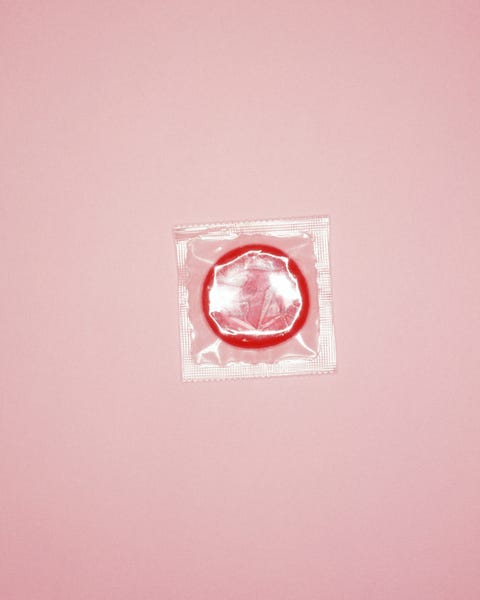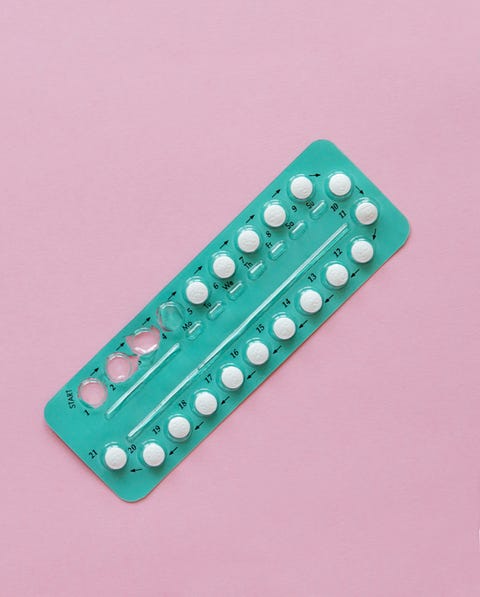Missed 2 Periods Not Pregnant but Have Symptoms
There's a lot of confusion and stigma surrounding birth control, from which method works best to what pills may (or may not) do to your body. That's why it's so important to talk to your daughter about birth control—so she stays safe and informed.
Below, top gynecologists set the record straight on the most common birth control misconceptions. Discuss them with your daughter, and if she has any other questions that you can't answer, go together to talk to your doctor. You may learn a thing or two yourself.
MYTH #1: You can't get pregnant during your period.

Getty Images
FACT: Although it's harder to get pregnant when you're menstruating, it can still happen. For one, "sperm can live in the female reproductive tract for three days," says women's health expert Sherry A. Ross, MD, author of She-ology: The Definitive Guide to Women's Intimate Health. Period.
And if your cycle is shorter, you're more likely to ovulate shortly after your period ends. "For women who have a period every 21 days and a period lasting seven days, they can get pregnant on day five, six, or seven if they have unprotected sex," Dr. Ross says.
MYTH #2: The withdrawal method is a reliable form of birth control.
FACT: Somehow every generation believes this, yet it's not true. "It surely works better than nothing and is most effective if used with natural family planning (avoiding intercourse during the fertile time of the month, which is during and around ovulation)," says Alyssa Dweck, MD, a New York-based gynecologist.
"But at best, withdrawal is effective 75 to 80 percent of the time," Dr. Dweck says. "In addition, withdrawal needs to be accomplished prior to any release of ejaculate, and oftentimes, pre-ejaculatory fluid is present and might contain sperm."
MYTH #3: If your partner tells you they are STI-free, you don't need to use a condom.

Getty Images
FACT: You can't be sure you're protected unless you use one. STIs are on the rise, according to the Centers for Disease Control and Prevention. "Even if your partner gets a clean bill of health after being tested, there is still a chance you can contract an STI (sexually transmitted infection) through sexual activity," Dr. Ross says.
"HPV and HSV are difficult to find during a routine checkup on a man's penis or woman's vagina unless there is an active wart or lesion," Dr. Ross says. "These can be transmitted through sexual contact even if someone tested negative during a physical exam." So use a barrier method of birth control such as a condom.
MYTH #4: The pill will make me fat!
FACT: "Study after study does not show weight gain to be a side effect of the birth control pill," Dr. Ross says. "The adolescent period and going off to college is when most women start the pill, and this is also a time that young women tend to gain weight."
MYTH #5: Something is wrong with me if I don't get a period every month while taking the pill.
FACT: Some women experience lighter periods when on the pill, and things like stress and weight changes can cause irregular periods. One downside to the pill is that you may not know if this is a sign of an underlying health problem.
"Many young women start the pill in their teens before they know whether or not they have regular or irregular periods," Dr. Ross explains. "When they decide to go off the pill, if they have irregular periods, it is not caused by the birth control pill. It may be an underlying hormonal problem, so alert your health care provider."
MYTH #6: It's unhealthy to take birth control pills for the sole purpose of never having a period.

Getty Images
FACT: "Not only is it not unhealthy, it's quite valuable for those who are professional athletes, in the military, traveling in unsanitary conditions, or for mere convenience," Dr. Dweck says.
It's possible to eliminate periods by taking the hormonal pills continuously (and not taking any placebo or "sugar" pills) or by taking specific types of birth control pills. Talk to your doctor if this is something you are interested in, as it all depends on what type of pill you're taking.
MYTH #7: The pill can make you infertile.
FACT: "The pill itself does not negatively influence fertility," Dr. Dweck says. "However, your age and original reason for going on the pill might." This may include health conditions such as endometriosis and pelvic inflammatory disease.
This content is created and maintained by a third party, and imported onto this page to help users provide their email addresses. You may be able to find more information about this and similar content at piano.io
Missed 2 Periods Not Pregnant but Have Symptoms
Source: https://www.womansday.com/health-fitness/a27633844/common-birth-control-myths/
0 Response to "Missed 2 Periods Not Pregnant but Have Symptoms"
Post a Comment